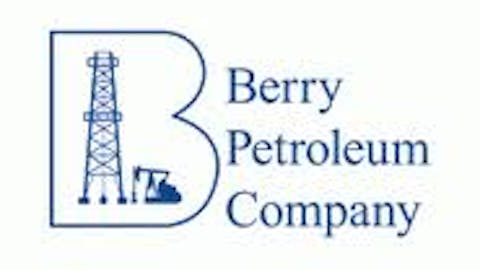Natural gas prices have gone from a 2012 low of $1.84 to $3.50 at the end of February according to Tim Guinness of Guinness Atkinson Funds. If the rising price trend keeps going, as he expects, it will be good news for numerous industry participants.

Rising
In his regular energy brief, Guiness noted both the price increase in natural gas and the fact that he now believes the market is “about 1 billion cubic feet (bcf)/day undersupplied.” While still below the average $4.38 the fuel fetched in 2010 and 2011, the recent price increase could be foretelling even higher prices down the road.
For example, Guiness expects that “in three years the gas price will be moving from 20% of the oil price ($3.50 gas is like $21/barrel oil) to 33% (if oil is $110 that is $36/barrel or $6.00 gas). That is 71% up on the $3.50 today…” If the manager is correct, now is the time to start looking at natural gas players.
Exxon Mobil Corporation (NYSE:XOM)
By far the most conservative option in the natural gas space would be Exxon Mobil Corporation (NYSE:XOM). The company made a huge bet on the fuel source a few years ago when it bought specialist XTO Energy. That company brought both reserves and important drilling expertise.
Low gas prices have made the company’s choice look like a mistake. However, Exxon judges decisions over decades, not years or months. It has happily stood by its choice because it is forecasting a 30% increase in energy demand in the United States by 2040, with a good portion of that being satisfied by natural gas fired energy plants.
With a long history of dividend increases, a diversified portfolio, and a long-term approach, Exxon is a great option for conservative investors who want to benefit from an improvement in natural gas prices. With a yield of around 2.5%, however, it isn’t the most enticing for income investors.
Royal Dutch Shell plc
Like Exxon Mobil Corporation (NYSE:XOM), Royal Dutch Shell plc (ADR) (NYSE:RDS-B) has made a big push into natural gas at what appears to have been an inopportune time. That said, the company ranks among the largest energy giants and it has about the same staying power as Exxon.
In fact, Shell is calling for natural gas to unseat coal as the second most popular fuel. That’s a good reason for management to stay the course. Note, too, that Shell has years of experience in the liquified natural gas space (LNG) in European markets. Although LNG is only just starting to catch on in the United States, its existing knowledge base should serve it well as LNG catches on.
With a yield about double that of Exxon Mobil Corporation (NYSE:XOM), Shell is a good bet for income minded investors.
Linn Energy LLC (NASDAQ:LINE)
Linn Energy LLC (NASDAQ:LINE) is a limited partnership focused on drilling for oil and natural gas. About 45% of the company’s reserves are natural gas. If gas prices head higher, the company gets paid more for what it pulls out of the ground. While an active hedging program means the full benefit will only be felt over time, that doesn’t change the long-term impact of higher gas prices.
The interesting thing about this particular partnership, however, is its pending purchase of Berry Petroleum Company (NYSE:BRY). This is the first time an exploration focused LP is purchasing a regular corporation.
Linn’s management already describes itself as having created an “acquisition machine,” buying non LPs would widen its options on that front. So increasing gas prices would propel both the top line and augment the partnership’s ability to expand via acquisition.
With a yield of around 8%, it certainly isn’t as low risk as Shell or Exxon, but for more aggressive income investors it might be an interesting income and growth play.
Chesapeake Energy Corporation
Chesapeake Energy Corporation (NYSE:CHK) has been in the news of late for less than desirable reasons, including the ouster of its CEO and co-founder. Part of what led to that event was the company’s aggressive growth in the natural gas space leading up with the precipitous fall in gas prices.
That left the company with a lot of debt and not enough money coming in. The departure of the CEO hasn’t changed that situation at all. So Chesapeake Energy Corporation (NYSE:CHK) is still trying to dig itself out of a bad situation. While higher natural gas prices won’t alleviate the problems, the problems would be much easier to deal with under the $6 gas scenario that Guiness is projecting.
Now is the time
Higher natural gas prices would be welcome relief to some companies and would bolster others with already strong businesses. With the start of a turn higher possible, now may be the time to take a look for opportunities.
Reuben Brewer has no position in any stocks mentioned. The Motley Fool has the following options:Long Jan 2014 $20 Calls on Chesapeake Energy, Long Jan 2014 $30 Calls on Chesapeake Energy, and Short Jan 2014 $15 Puts on Chesapeake Energy.




